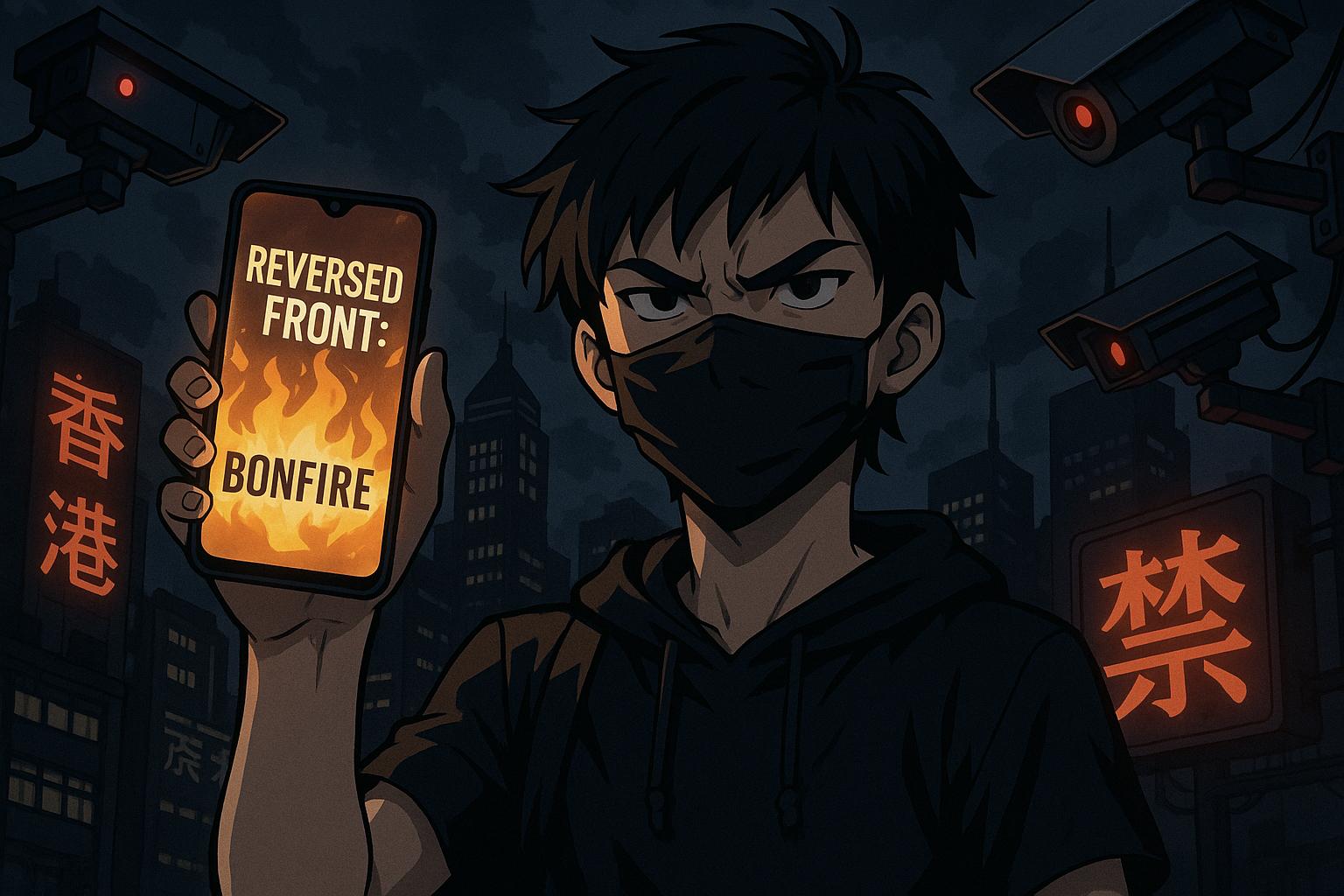Hong Kong's police have recently intensified their scrutiny of digital platforms, marking a significant escalation in their ongoing efforts to suppress dissent. On Tuesday, authorities publicly accused a mobile game application, "Reversed Front: Bonfire," of promoting armed revolution and secessionist activities linked to Hong Kong and Taiwan. This marks a notable moment as it is the first time a gaming app has been publicly denounced in such a manner, raising critical concerns about freedom of expression under Hong Kong’s national security laws.
According to police statements, downloading or sharing the application could lead individuals to violate the stringent national security laws imposed by Beijing, which have been increasingly enforced since the 2019 anti-government protests. The police warned that possessing the app may be viewed as holding a publication that harbours seditious intent. The game, developed by ESC Taiwan, allows players to embody various rebel factions—such as those representing Hong Kong, Taiwan, and Tibet—whose goal is the overthrow of the Chinese Communist regime. Authorities have described the app as a tool that disguises its violent intentions under the facade of entertainment.
Critics of the police's actions have expressed concern over the implications for creative freedom. Kuo Hao Fu, a player from Taiwan, argued that the game employs satire to tackle serious political issues and allows users to assume roles in representing China. “The Hong Kong police's actions demonstrate how Hong Kong's democratic freedoms have been controlled by the Chinese Communist Party,” he stated, highlighting the stifling environment for artistic expression.
The controversy surrounding "Reversed Front: Bonfire" sheds light on a broader pattern of control over digital media and the expression of dissent in Hong Kong. In 2019, Apple removed a map application that aided protesters by providing real-time police locations after criticism from Chinese state media. This trend indicates how international companies struggle to balance compliance with Chinese government demands while maintaining market access. The Hong Kong government, supported by Beijing, contends that such measures are necessary to restore stability and order following widespread civil unrest.
The introduction of the national security law has profoundly affected the political landscape in Hong Kong, resulting in the erosion of freedoms previously enjoyed by its citizens. Since its enactment, many dissenting voices have been silenced through arrests and prosecutions, creating a chilling atmosphere for activists and those seeking to engage in political commentary, even through art and gaming.
This latest development comes amid ongoing concerns regarding Hong Kong's diminishing democratic freedoms and the growing control exerted by Beijing. Both governments maintain that the security laws are essential for protecting the public and ensuring social stability after the unrest of 2019. However, critics argue that these measures only serve to quash dissent and silence opposition, further entrenching a system of state control over public discourse.
As the discussion surrounding the implications of creative platforms like "Reversed Front: Bonfire" unfolds, it raises critical questions about the future of artistic expression in a climate increasingly defined by fear of reprisal and legal repercussions. The case highlights the intersection of technology, politics, and personal agency in an environment marked by systemic repression.
📌 Reference Map:
- Paragraph 1 – [1], [2]
- Paragraph 2 – [1], [2], [5]
- Paragraph 3 – [4], [6]
- Paragraph 4 – [1], [7]
- Paragraph 5 – [1], [3], [2]
Source: Noah Wire Services
